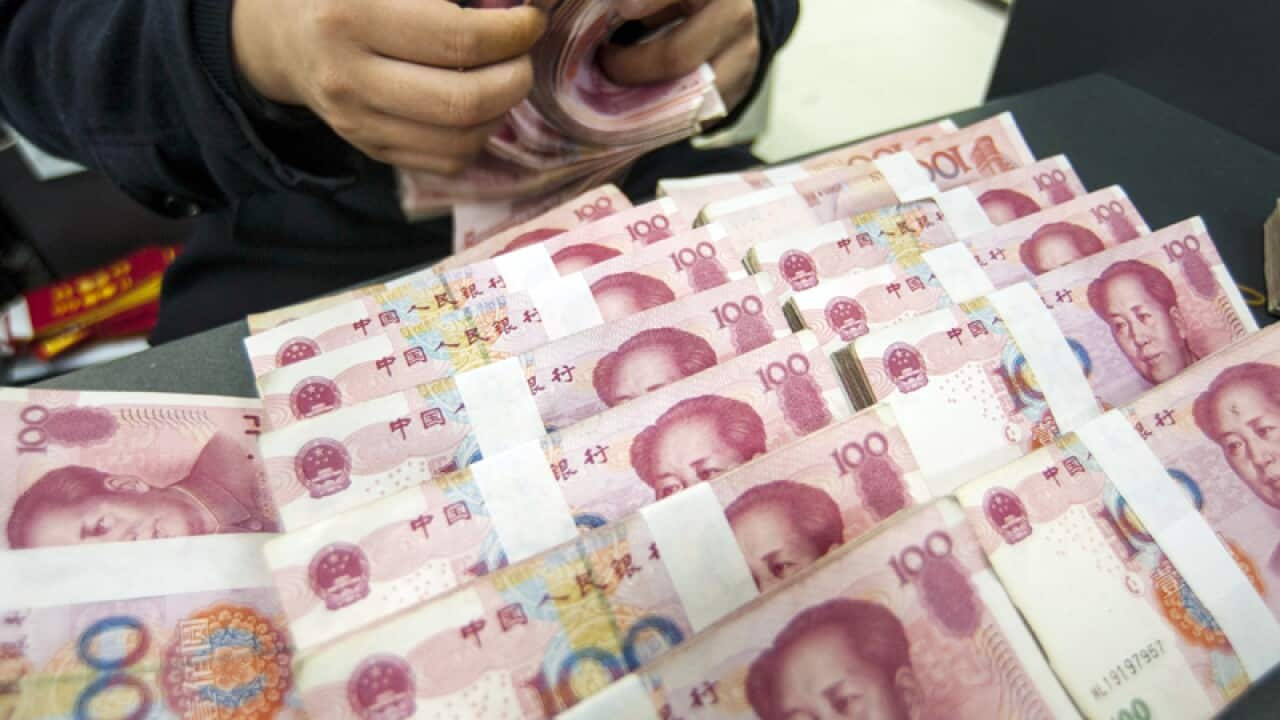China's yuan has joined the International Monetary Fund's basket of reserve currencies in a milestone for the government's campaign for recognition as a global economic power.
It is the first time that a currency has been added to sit alongside the US dollar, the euro, the yen and the British pound in the IMF's special drawing rights (SDR) basket, which determines the currencies countries receive as part of IMF loans.
The IMF is adding the yuan, also known as the renminbi or "people's money", on Saturday - the same day that the Communist Party celebrates the founding of the People's Republic of China in 1949.
The IMF announced last year that it would add the yuan to the basket, so actual inclusion is not expected to impact financial markets. But it puts Beijing's often opaque economic and foreign exchange policy in the international spotlight as central banks add yuan assets to their official reserves.
China stunned investors by devaluing the currency last year and the yuan has since weakened to near six-year lows, adding to worries about already feeble global growth.
US Treasury Secretary Jack Lew said on Thursday the yuan was "quite a ways" from true global reserve currency status. While recognising "enormous" change in China in the last 10 years that had made the currency more open, Lew said the government still had work to do.
"Being part of the SDR basket at the IMF is quite a ways away from being a global reserve currency," he said.
Capital Economics said inclusion of the currency in the IMF's SDR basket will have minimal impact on foreign demand for yuan assets, so "offers little support" for the currency.
"If anything, the risk is that official intervention to keep the renminbi stable ahead of its inclusion will subsequently be paired back, allowing for renewed deprecation," it said in a research note.

